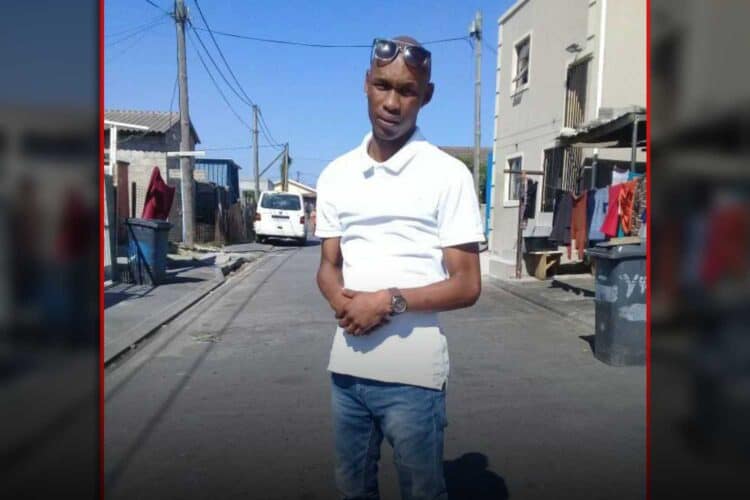The Western Cape High Court recently sentenced two members of the notorious Gupta gang, Gcinithemba Beja and Fundile Maseti, to seven life terms each for their involvement in a deadly mass shooting that occurred in Khayelitsha in 2020.
Cape Town court hands Gupta gang extortionists for 2020 Khayelitsha mass shooting
In a courtroom filled with anticipation, on Thursday, Judge Daniel Thulare handed down the verdict against Beja and Maseti, who were convicted on seven counts of murder, three counts of attempted murder, and unlawful possession of a firearm and ammunition.
The severity of their crimes, which involved premeditated murder and attempted murder, led the court to impose the maximum sentences allowable under South African law: seven life sentences each for murder, alongside five years for each count of attempted murder and fifteen years for the weapons charges.
The judge ruled that sentences for attempted murder and weapons charges would run concurrently with the life sentences.
Here’s what we know about Gcinithemba Beja and Fundile Maseti
In court, the backgrounds of both men were meticulously examined as part of the effort to understand their motivations and the circumstances leading to the 2020 Khayelitsha mass shooting.
Gcinithemba Beja, 33, once led a seemingly typical life in Khayelitsha, marked by ordinary struggles and modest aspirations.
His early life, as recounted during the trial, was unmarred by violence or criminal tendencies.
Raised in a stable family environment alongside five siblings, Beja’s formative years were typical of many in his community.
His parents, a married couple who managed to nurture their children in a cohesive family unit, provided a backdrop of normalcy.
After completing his foundational education, Beja did not pursue further formal schooling beyond Grade 11, choosing instead to enter the workforce.
His employment history included a stint as a packer at a local Pick n’ Pay and later as a stock taker at Ngquzi Tavern.
Through these roles, he supported not only himself but contributed to his family’s upkeep.
His engagement in community activities, notably as a soccer player and later a coach, further embedded him within the social fabric of his neighbourhood.
Despite these community ties, his life took a darker turn, where several dealings with shoddy acquaintances flung Beja into a life of crime, which, ultimately, led to his arrest in 2020.
His involvement in the mass shooting starkly contrasted with the non-violent image described by those who knew him, including a girlfriend who depicted him as a “lovely and caring personality.”
Conversely, Fundile Maseti consistently maintained his innocence throughout the trial and presented a different yet equally complex profile.
Prior to his arrest, Maseti was an entrepreneur in Khayelitsha, where he owned and operated a chicken business.
His personal life was characterised by his role as a family man with a wife and son.
Maseti’s involvement in the community and his entrepreneurial spirit seemed to position him as a figure striving for positive influence within his environment.
However, in his case too, the once-promising entrepreneur fell for the allure of crime, particularly the high-risk-reward nature of extortion.
His refusal to accept responsibility for the charges levelled against him was a recurring theme throughout the legal proceedings.
Revisiting the 2020 Khayelitsha mass shooting
In 2020, the tranquillity of a birthday party in Khayelitsha, a township on the outskirts of Cape Town, was shattered by an eruption of gunfire that marked one of the most harrowing episodes of gang-related violence in the area’s recent history.
The incident occurred during a birthday celebration hosted for Ntandazo “Ntera” Makhetha, a local figure involved in the same shadowy underworld as the attackers.
The party, attended by friends, family, and children, was meant to be a joyful community gathering.
Unbeknown to the attendees, it would soon become the scene of a brutal assertion of power by the Gupta gang, of which Beja and Maseti were alleged members.
As the party was underway, the Gupta gang, embroiled in a vicious battle for control over the local extortion racket, targeted Makhetha in a chilling display of violence.
The attackers, armed with both large and small firearms, stormed the gathering, indiscriminately firing at the crowd. The assault was not just a hit against Makhetha but a terrifying message to the community: no one associated with rivals was safe.
The gunfire resulted in the deaths of seven individuals, including Makhetha, and left several others wounded. Among the victims were bystanders whose only connection to the gang rivalry was their presence at the party.
The chaos and fear sown that day extended beyond physical injuries, embedding lasting trauma in the hearts of all who survived.






